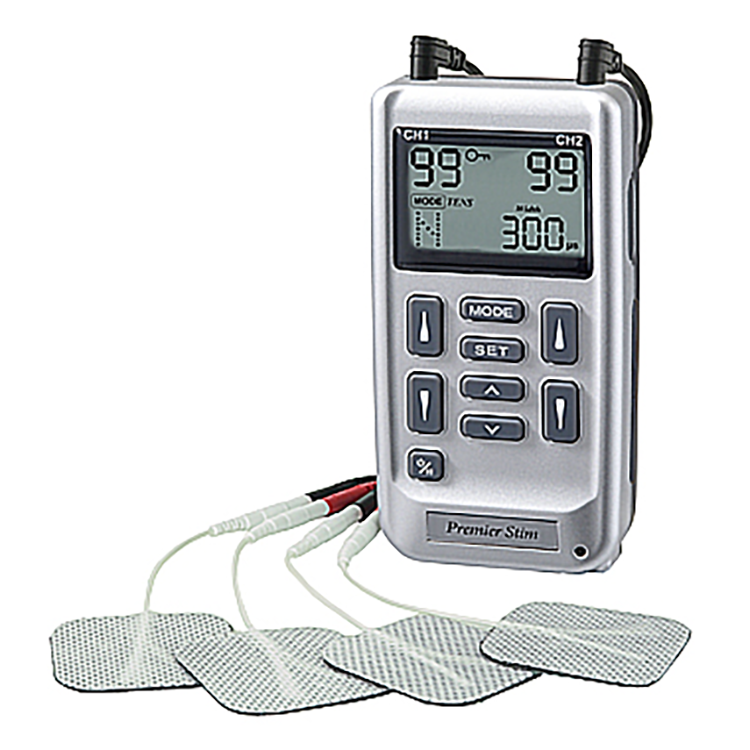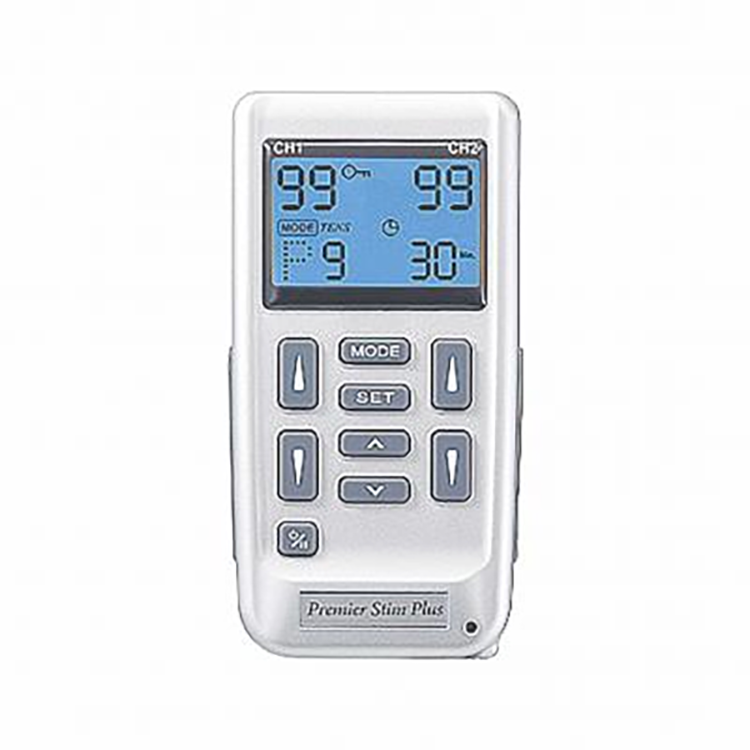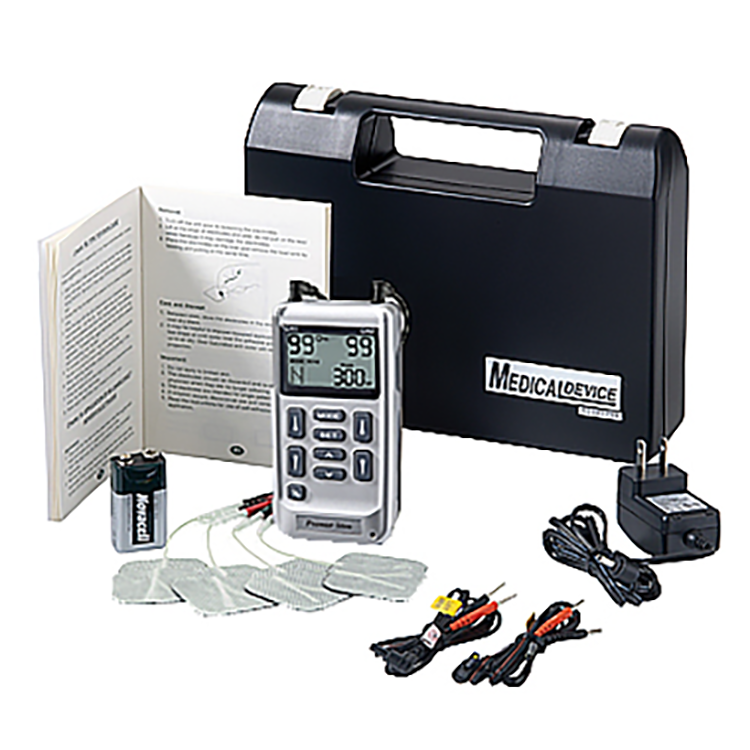
BUY NOW, PAY LATER.
Financing Options Available

CANADA WIDE SHIPPING
Free Shipping on Orders Above $100*

Don't miss our limited time deal!
Combo packages for rental starts from $250
Product added to cart
| Model Name | EM-6300A |
| Channel | 2 Channels |
| Amplitude | Adjustable 0-100mA peak (500 ohm load) |
| Size | 11.8 cm (L) x 6 cm (W) x 3.1 cm (H) |
| Weight | 157 grams ( Battery included) |
| Wave Form | Asymmetrical Rectangular Biphasic Pulse |
| Pulse Rate | 2~150 Hz, 1Hz / Step |
| Pulse Width | 50~300 microseconds, 10 us / step |
| Timer | 5~60 minutes or continuous, 5 min./ step |
| Compliance Meter | 60 sets of individual operation records |
| Stimulation Type | TENS + EMS |
|
Modes |
TENS: Burst, Normal, Modulation, SD1 SD2, additional
5 TENS Modes: Burst, Normal, Modulation, Strength Duration 1, Strength Duration 2 Burst – Intimate tapping techniques of massage Normal – Most steady and consistent massage session Modulation – Gently cater to the muscle with gradual and frequent waves SD1 (Strength Duration) – The intensity is always increasing while the pulse width is decreasing SD2 – The intensity is always increasing while the pulse width is decreasing and vice-versa. Preset – Additional Nine (9) Preset TENS Programs 3 EMS Modes: Constant, Synchronous and Alternate Constant: Constant stimulation based on setting value. Only pulse width, pulse rate and timer are adjustable in this mode. “Constant” is equal to the “Normal” mode of a TENS unit. Synchronous: Stimulation of both channels occurs synchronously Alternate: The stimulation of the CH2 will occur after the 1st contraction of CH1 is completed. |
| Charging Type | 9V Battery or AC Power Adapter |
| Tolerance of Settings | ± 10% |
| Tolerance of Output | ± 20% |
What is TENS?
TENS: “Transcutaneous Electrical Nerve Stimulation”- a safe, non-invasive, drug free method of pain relief used by Physical Therapists and professional Doctors for over decades. By delivering stable pulses to the skin to stimulate nerve fibers, Tens unit could effectively block the pain signal to people’s brain. At the same times, increases natural endorphins, which is a natural pain reliever. In many cases, the reduction or elimination of pain lasts longer than the period of stimulation.
What is EMS?
EMS: “Electrical Muscle Stimulation” is an internationally accepted and proven way of treating muscular injuries. It works by sending electronic pulses to the muscle needing treatment; this causes the muscle to exercise passively. When the muscle receives this signal it contracts as if the brain has sent the signal itself. As the signal strength increases, the muscle flexes as in physical exercise. Then when the pulse ceases, the muscle relaxes and the cycle starts over again, (Stimulation, Contraction and Relaxation.)
Couldn't load pickup availability


